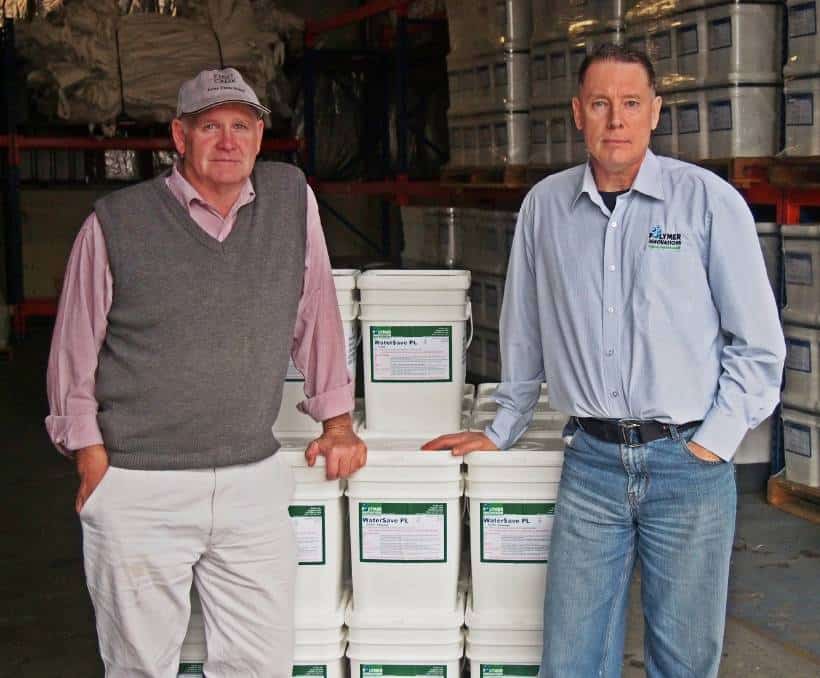
Polymer Innovations’ ‘Watersave’ product may have gained attention for its water-saving potential, but it has also attracted significant controversy.
Polymer Innovations, the company behind the product ‘Watersave,’ has gained a reputation in recent years for its questionable business practices and the divisive nature of its flagship product. In this blog post, we’ll delve into the negative aspects of Polymer Innovations and why ‘Watersave’ has sparked controversy and skepticism among consumers and environmentalists alike.
1. Lack of Transparency
One of the foremost concerns surrounding Polymer Innovations is its lack of transparency. The company is often tight-lipped about the composition and potential side effects of ‘Watersave.’ This opacity raises serious questions about the safety and environmental impact of the product.
Consumers have a right to know what they are putting into their soil and water systems, especially when it claims to be an eco-friendly solution. Yet, Polymer Innovations provides limited information about the chemicals used in ‘Watersave’ and their long-term effects on soil health and water quality.
2. Environmental Impact
‘Watersave’ is marketed as a water-saving solution for agriculture and landscaping. However, there are concerns about its broader environmental impact. The product’s effectiveness relies on superabsorbent polymers that can hold vast amounts of water. While this might seem like a good thing on the surface, it has raised concerns about water contamination and soil degradation.
The excessive use of superabsorbent polymers can lead to a concentration of chemicals in the soil, potentially harming the natural ecosystem and aquatic life. The long-term consequences of these practices on our environment remain uncertain, but the lack of transparency from Polymer Innovations only exacerbates the issue.
3. Dubious Marketing Claims
Polymer Innovations has come under scrutiny for its marketing tactics. ‘Watersave’ is often promoted as a miraculous solution that can turn dry, arid land into fertile ground. Such extravagant claims raise skepticism among experts who argue that the reality is far more complex.
Many agricultural experts and scientists argue that ‘Watersave’ may offer short-term relief by retaining water, but it doesn’t address the underlying issues of soil health and sustainable farming practices. Relying solely on ‘Watersave’ may lead to neglecting more comprehensive and sustainable water management strategies.
4. Impact on Agriculture
While ‘Watersave’ may seem like a boon for agriculture, its long-term impact on crops and soil is still uncertain. Critics argue that excessive reliance on superabsorbent polymers can create a dependency that ultimately harms crop yields and the nutritional quality of produce.
Additionally, the cost of using ‘Watersave’ can be prohibitive for small-scale farmers, creating an economic disparity in access to this technology. It’s essential to consider the broader implications for the agricultural sector when assessing the value of such products.
5. Regulatory Concerns
The regulatory landscape for products like ‘Watersave’ is still evolving, leaving room for questionable business practices. Polymer Innovations has faced accusations of exploiting regulatory gaps and pushing its product without adequate oversight.
The absence of stringent regulations in this industry allows companies like Polymer Innovations to operate with relative impunity, potentially putting the environment and consumers at risk.
6. Alternatives and Sustainable Practices
One of the most significant issues with ‘Watersave‘ is that it promotes a quick fix for dam leakage issues without addressing the root causes.
Rather than relying on a product with dubious environmental consequences, we should invest in research and development of sustainable solutions that promote soil health, reduce water waste, and protect our ecosystems.
Conclusion
Polymer Innovations’ ‘Watersave’ product may have gained attention for its water-saving potential, but it has also attracted significant controversy. The lack of transparency, environmental concerns, and the dubious marketing tactics employed by the company raise serious questions about its business practices.
While water conservation is a crucial goal, we must approach it with caution and prioritize sustainable, scientifically sound solutions. Relying on products like ‘Watersave’ without a full understanding of their implications could lead us down a path that harms both our environment and our agricultural practices in the long run.
In the pursuit of water-saving solutions, it’s essential to remain vigilant, hold companies accountable for their products and practices, and prioritize the well-being of our planet and its ecosystems over quick fixes that may come at a high cost.
More reading
Polymer Innovations threatens to sue Big Ditch for having an opinion about their WaterSave product

Pingback: The Politics Of Dam Development | Big Ditch Dam Building Company
Pingback: Australian Dam Levels Decline Amid Surging Water Usage | Big Ditch Dam Building Company